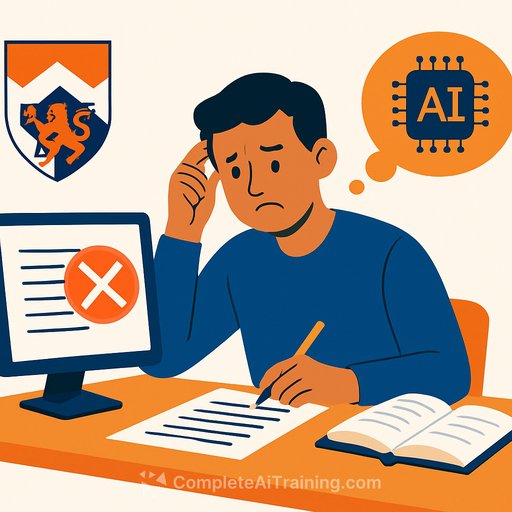NTU Upholds Zero Grade for Student Over False Citations and AI Use in Essay
Nanyang Technological University (NTU) in Singapore has confirmed the zero mark given to a student accused of academic misconduct involving an essay. After the student appealed, a review panel found 14 instances of false citations or fabricated data within the essay. These errors went beyond simple typos, including references to sources that do not exist.
False citations are a serious breach of academic standards. The panel emphasized that accurate source citation is fundamental to research and writing, and citing non-existent materials is a significant violation. Such mistakes often indicate inaccuracies generated by artificial intelligence tools.
The Assignment and the AI Policy
The essay was part of a course on health, disease outbreaks, and politics in NTU’s School of Social Sciences. Earlier in April, three students enrolled in this course received zero grades after their essays were flagged for containing fabricated academic references, incorrect statistics, or broken links.
NTU has explicitly banned the use of generative AI (Gen AI) tools for written assignments in this module. Students were warned that any AI-generated content would result in a zero grade. The assignment accounted for 45% of the final mark.
The student who appealed stated she only used a reference organiser and submitted corrected citations after initial mistakes. Despite this, the panel upheld the zero grade, highlighting the seriousness of the misconduct.
Responses and Wider Implications
The student expressed disagreement with the panel’s findings but accepted the decision as “bad luck,” indicating readiness to move on. Another penalised student had their appeal rejected, while a third did not appeal. NTU maintains that all cases of academic misconduct are recorded internally, and the appeal panel’s decisions are final.
The case has sparked broader discussion about the role of AI in education and its impact on academic integrity and critical thinking. It also highlights the challenges institutions face in balancing technology use with maintaining standards.
Protecting Academic Integrity
NTU urged the community to respect the appeals process and refrain from personal attacks on individuals involved. The university reaffirmed its commitment to protecting the well-being of faculty, staff, and students.
- Key takeaways for writers: Always verify citations and sources carefully. Relying on AI tools without critical review can lead to significant errors.
- Academic integrity: Fabricating data or references compromises trust and can carry harsh consequences.
For those interested in ethical AI use and improving research skills, exploring courses on AI tools and citation management can be valuable. Resources like Complete AI Training's latest AI courses offer practical guidance.
Your membership also unlocks:






